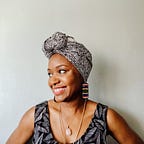What is Funny for White Parents is Criminal for Black Parents
The term “reproductive justice” was devised in 1994 by black women activists to highlight the need to contextualize reproductive rights and health within a broader social justice framework.
SisterSong defines Reproductive Justice as the human right to maintain personal bodily autonomy, have children, not have children, and parent the children we have in safe and sustainable communities.
It probably won’t shock you to hear me say that there is no such thing as homogenous parenting.
However, shocking is the vastly different ways that parents are treated, even when exhibiting similar behavior.
Behavior considered normal and acceptable for white parents is often the same BEHAVIOR that prompts authorities to determine Black parents are unfit to care for their children.
New Jersey Public Radio and WNYC took a look at the state’s data on the 25,713 children who were placed in foster care between 2009 and 2013, to learn the details of the cases.
Their investigation uncovered that Black parents are more than four times as likely as white parents to to lose custody of their children.
In homes where there was drug use or domestic violence, white children were seen as safer than black children in the same situations.
More than 200,000 children of color are currently in government custody in the United States’ foster system.
This is a continuation of the settler-colonial tradition of separating children from their families of origin based on claims that it is in the child’s best interest.
As a result, 30% of Black children were forced to raise themselves and each other during chattel slavery.
As the bodies of indigenous children are still being recovered from unmarked graves at residential schools throughout North America, the connection between white supremacy and the complete disregard of body autonomy and parental rights for Black and Indigenous folks is made more apparent.
While rich, white celebrities brag and laugh about waiting until their children stink to bathe them, Syesha Mercado and her partner are fighting to regain custody of their 18-month-old son and newborn daughter.
The danger in discussing parenting and childhood in flat, linear terms without nuance, in denial of social stratification, and divorced from history is that it allows us to label families from marginalized and oppressed communities as deviant, therefore justifying harsh punishment and continued dehumanization.
The danger in starting and stopping conversations about parenting and the bodies of childbearing folks at Roe v. Wade is that it keeps Black children in harm’s way.
